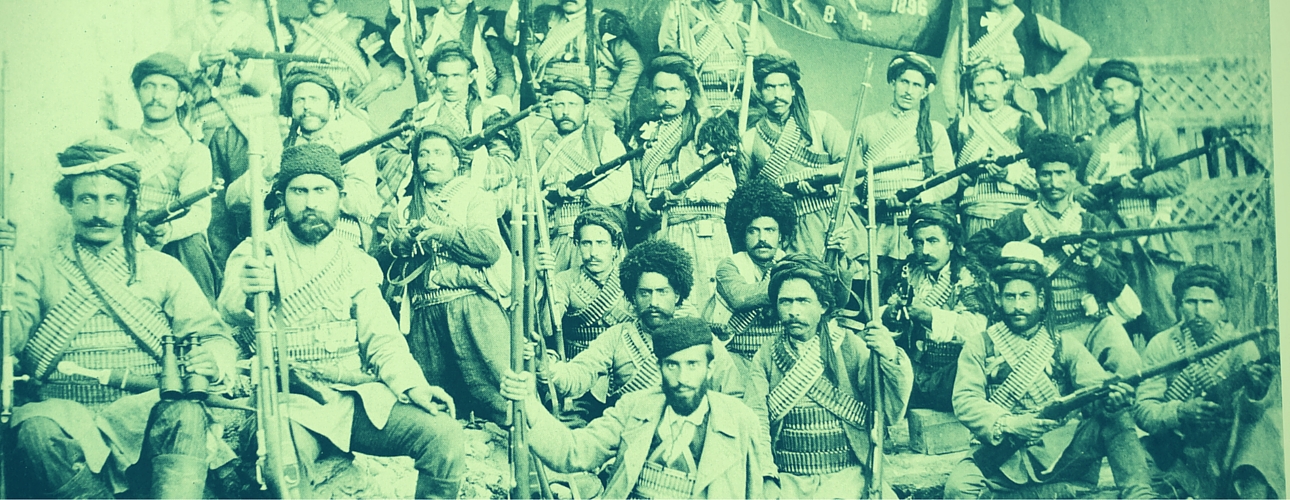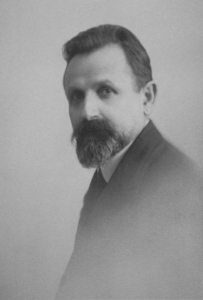
Avetis Aharonian [1866–1948]

Aharonian was born in Igdirmava, a village of Igdir, in the Surmalu region, at the foot of Mount Ararat. He received his secondary education at the Gevorgian College (Seminary) of Ejmiatzin. He later attended the Sorbonne, in Paris, and the University of Lausanne, in Switzerland. He was a prolific writer and activist, and a member of the ARF Bureau.
Aharonian worked for Droshak and headed the editorial staff of the Mourch (Hammer) and Harach newspapers in Transcaucasia. He was also the principal of the Nersisian School in Tiflis, Georgia.
In 1909, toward the end of the Tsarist persecution of revolutionaries, he was imprisoned for two years by Russian authorities for being an ARF leader. He returned to Switzerland after his release from prison.
During the years of Armenian independence, Aharonian headed the delegation of the Armenian Republic to Constantinople, and also at the Peace Conference in Paris, where he signed the Treaty of Sevres on behalf of the Republic of Armenia.
His last words, translated below, were spoken in February 1948, in Marseille, France, at a Hamazkayin Cultural Association gathering of some two thousand people, at which he was the main speaker. He suffered a stroke on stage and died two months later, in Paris, at the age of 82.
Armenian people, understand that this a waystation. Believe that you will return to the land of your forefathers, to the land of brave men. We have come here in order to not stay, we have come in order to return…
Know, Armenian people, that… you have something to say to this ignoble world. I do not compare my lofty and wise nation to any other. Armenian people and youth, be well convinced that you have no need to bow before any other nation.
For us to know who we were and who we are, it is enough to see the ruins of Ani…. Such glory and honor, what a magnificent demonstration of the culture and civilization of the Bagratouni dynasty… What arches, what churches. After seeing Ani, when under a picture I read the line “Past and present Armenia,” my spirit soars for a moment, knowing that all those temples were built under the bellows of wars… Oh, that’s when we understand the worth of our forefathers, of their creations, of their armies of brave men.
Excerpt from speech, Marseille, France. February 11, 1948


